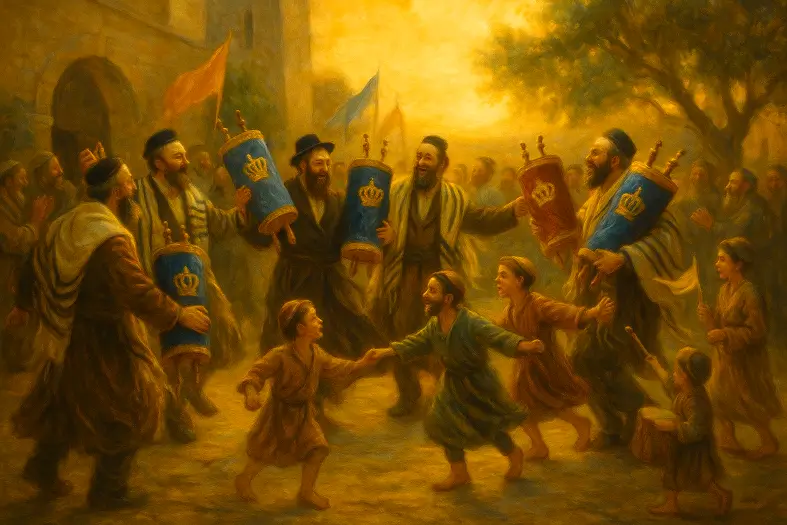


It is forbidden on Shabbat to travel more than 2,000 cubits (approximately 3000 ft.) out of a city's parameters.
This mitzvah prohibits leaving one’s designated Shabbat boundary, traditionally defined as 2000 cubits (approximately 1 km) beyond the city limits. The restriction preserves the sanctity of Shabbat as a day of rest, keeping Jews rooted in their community rather than engaging in travel or work-like activities. This law reinforces the spiritual atmosphere of Shabbat, ensuring it remains centered on holiness, prayer, and community.
Commentary & Classical Explanation:


For mitzvot that honor, safeguard, and sanctify the Shabbat day of rest.
Represents Emunah—the deep, inner trust in Hashem’s presence, oneness, and constant involvement in our lives. This badge symbolizes a heartfelt connection to G-d, rooted in belief even when we cannot see. It is the emotional and spiritual core of many mitzvot.
Represents the concept of spiritual intentionality, purity, and sanctity—set apart for a higher purpose.
Signifies awe and reverence toward Hashem—living with awareness of His greatness and presence.
Mitzvot that strengthen communal life — showing up, participating, supporting, and belonging. Community is where holiness is shared, prayers are multiplied, and responsibility becomes collective.
Mitzvot that define and deepen the relationship between a person and their Creator. These include commandments involving belief, prayer, Shabbat, festivals, sacrifices, and personal holiness — expressions of devotion rooted in divine connection.

Dive into mitzvos, prayer, and Torah study—each section curated to help you learn, reflect, and live with intention. New insights are added regularly, creating an evolving space for spiritual growth.

Explore the 613 mitzvos and uncover the meaning behind each one. Discover practical ways to integrate them into your daily life with insights, sources, and guided reflection.

Learn the structure, depth, and spiritual intent behind Jewish prayer. Dive into morning blessings, Shema, Amidah, and more—with tools to enrich your daily connection.

Each week’s parsha offers timeless wisdom and modern relevance. Explore summaries, key themes, and mitzvah connections to deepen your understanding of the Torah cycle.